Choosing a university degree feels like signing a contract for your future. What if you hate it? What if it doesn’t lead to a job? Or worse, what if it leads to a job you hate. Here’s the 6-step method I used to figure it out, and why I still recommend it today.
These are simple steps you can follow to choose a degree. To choose a degree, select one that is a prerequisite for a job that matches the lifestyle you want to lead (e.g., day shift only, working in a city vs remote regions), makes you enough money to at least meet but preferably exceed your living costs, and is in an area you’re interested in.
From the sciences to humanities, business to the arts, as students we’re faced with so many choices. This guide explains in detail how to choose the right university degree by using a simple, step-by-step process. I used this exact process to choose my ideal degree, so I know it works!
6 Steps To Choosing The Right Degree For You
Become the student you’ve always wanted to be
Study smarter, write better, and finish your degree faster
When you decide to go to university, you want to know the degree you’ve picked will get you a job at the end of it. Even if you have no idea what you want to do, it’s important that whichever degree and job you choose that you will enjoy it.
After all, that’s what uni is all about – getting a piece of paper so that you can move on, make some money, and live your life.
Here’s a simple step-by-step process to help you choose the right degree for you.
1. Choose a mandatory degree
It’s important to choose a mandatory degree, which is a degree that’ actually needed to secure a job. Most of us go to university to get a job, so there’s no point in studying a degree that you don’t need.
For example, you need a medical degree to become a doctor, or a law degree to become a lawyer, but you don’t need a business degree to start a business, or work your way up in a business.
It’s best to only choose a degree that are a requirement for a job, otherwise you’re better off just going and getting the job (e.g., an internship) rather than wasting 3 or 4 years of your life and tens (or even hundreds) of thousands of dollars.
The only exception to this is if you already have a passion for something e.g., music or painting, and you want to do a degree to improve your skills, learn theory and network with professionals in your field.
2. Decide how you want to live your life
When you choose a degree to study you’re not just choosing the career you will have, you’re choosing what your life will be like. There are several living conditions or factors you should decide before deciding on your degree, in particular are you okay with:
- Working both night and day shifts
- Working swing shifts (e.g., 14 days on, 7 days off)
- Working in regional or remote areas (or do you want to stay in your home city)
- Fighting for a job in saturated market (vs a high-demand job with few applicants)
- Working for a relatively low pay (compared to other degree-qualified professions)
A good way to do this is to grab a piece of paper, or open a word document and set it up with 2 columns. In one column list all the deal breakers, for example if you aren’t willing to work nights then put that down.
Then in the other column list your ideal working conditions, e.g., only Monday to Friday during the day.
There is no point in completing a degree if you only end up in a job that makes you miserable because of the living conditions.
3. Work out a minimum starting wage

Only you know your living expenses, only you know how much money you are going to need or want in the future.
For now this amount just needs to be a minimum. Remember wages go up over time, and graduates almost always start on lower wages, so factor that in.
But it’s important to know how much you’ll need to earn when you first leave university, you need to cover your living costs (plus more for savings, investing etc) and might need to repay some money after you finish your degree.
There can be a big salary range between jobs, and it will also depend on where you live. Here are some examples of graduate wages from around the world:
Graduate Geologist
Australia

United States
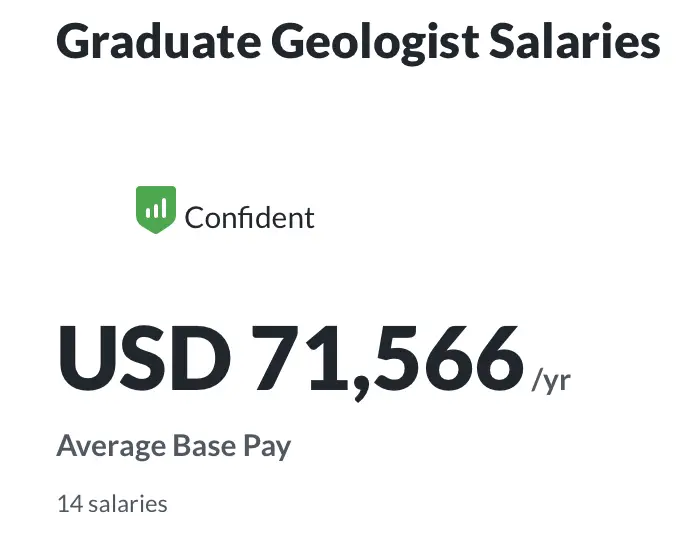
United Kingdom
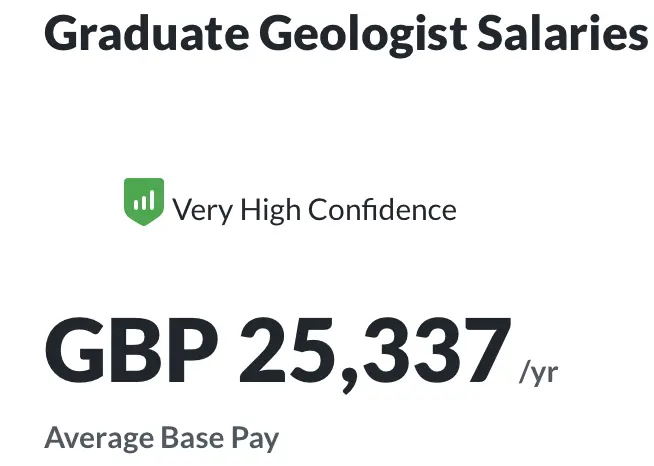
Graduate Teacher
Australia
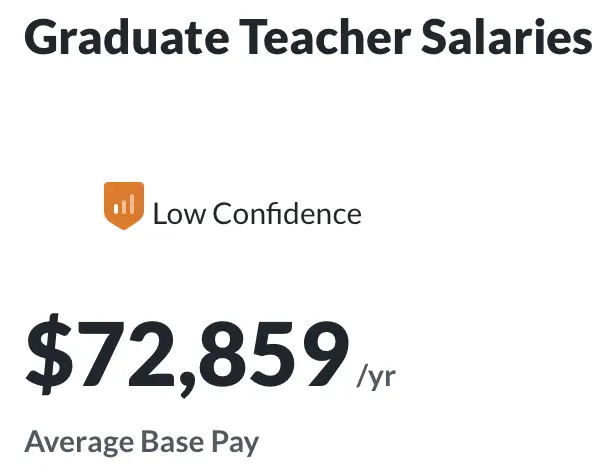
United States
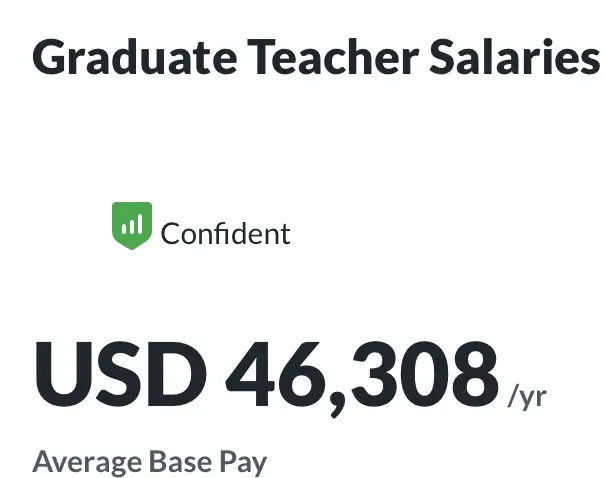
United Kingdom
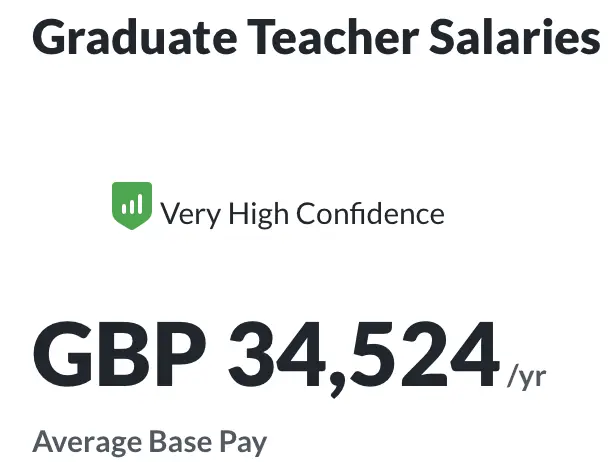
Graduate Software Engineer
Australia
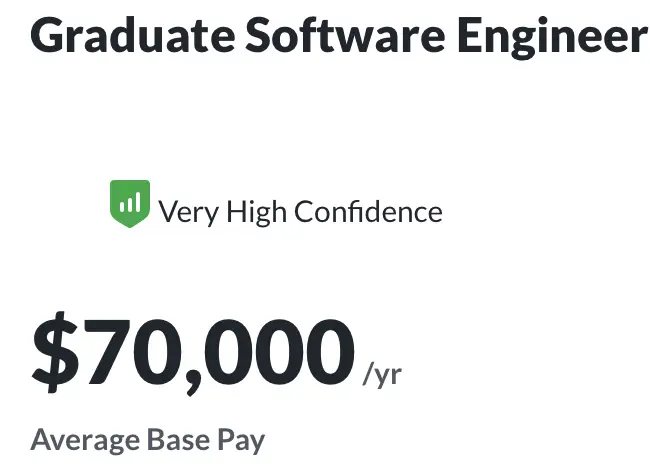
United States
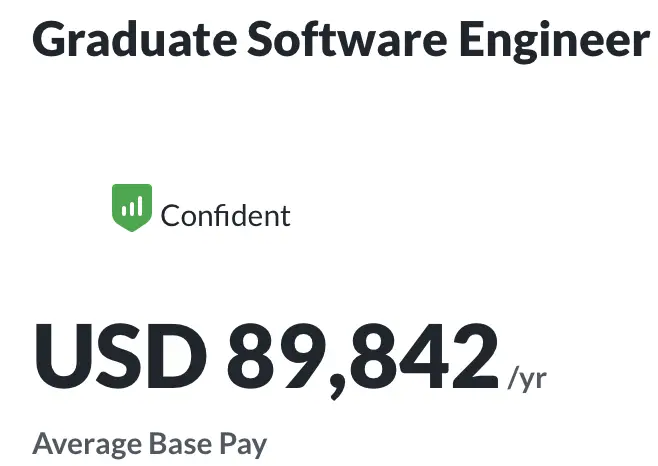
United Kingdom
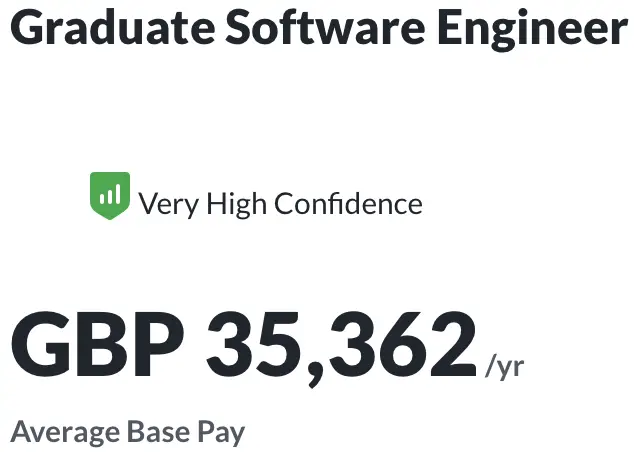
4. List your interests broadly
Next, list all of the things you’re interested in. You can put this on a separate piece of paper or document, or you can add it to your “ideal conditions” column you created in step 2.
You might find it easy to think of things you are interested in, like science, teaching, or medicine.
But if you aren’t sure what to list, then write down what you like to do instead, here are some examples to help you get started:
- Like to win arguments (Law)
- Like to help people (Nursing, Social work, Psychology, Education)
- Like watching or playing sport (Physiotherapist, PE teacher)
Add as many interests as you can, then connect them with possible degrees.
5. Short list the degrees
Now it’s time to knock out all the jobs that you know you don’t want, and short list the degrees that are left.
For each degree that you knock out, make a note of why. Is it because it has lots of night shifts, or would it mean you would have to work away from home for long periods of time?
Perhaps it’s because the job would require you to do lots of public speaking, but you’re an introvert and hate speaking to large groups of people. Make a note of all the reasons why you’re knocking out a particular job or degree.
The degrees that are left should now fit your profile almost exactly. In fact, the degrees, and ultimately the career it leads you to should now match your ideal living conditions, and starting minimum wage as closely as possible.
6. Choose a degree that employers can understand
The final step is to choose a degree from your short list. One will probably appeal to you more than the others on your short list.
As you make your choice, here’s one extra thing to consider: The title of a degree can be different at different universities, for example one university might have a “Bachelor in Geology”, while another has “Bachelor of Earth Science”, and yet another might have one called “Bachelor in Land and Water Science”.
It’s important that the title of the degree matches the job requirements.
The last thing you want to do is have a degree that your potential employer can’t understand, they will most likely immediately put your resume in the no pile and move onto another graduate with the exact qualifications they are looking for.
Sometimes this can also happen when a university offers a specialist area as a subject but not as a degree, for example lots of universities offer hydrology or geophysics as a subject, but very few offer it as a degree.
You may have to look between universities to find one offering the degree you have chosen from your short list (believe me, it’s worth the search!).
Congratulations – You have now chosen your degree! Now discover everything you NEED to know befpre you start university.
Ready to Succeed At University? 🎓
Starting university can feel overwhelming—but it doesn’t have to. Imagine having a step-by-step guide for managing your time, smashing your assessments, and graduating with results you’re proud of. That’s exactly what the Uni Pro Accelerator is here for. This course is designed to help you:
✅ Plan your degree like a pro, avoiding expensive mistakes that add years to your degree.
✅ Write better essays, reports, and literature reviews with less stress.
✅ Manage your time effectively, even during exam season.
✅ Build the skills you need to ace every assessment – from research to editing.
Here’s why it works: I went from being a high school dropout to graduating with the university medal, completing a PhD, and teaching at a university. I’ve been where you are, and I know what it takes to succeed.
🚀 Get Started Today
Enrolling in Uni Pro isn’t just about surviving university – it’s about thriving. Don’t leave your success to chance.